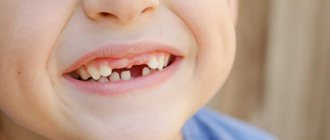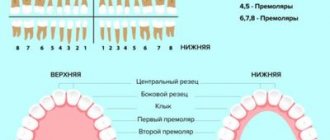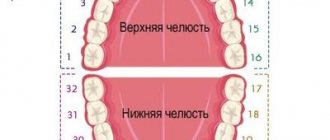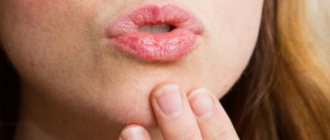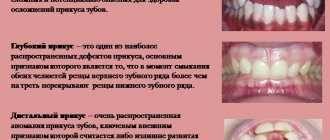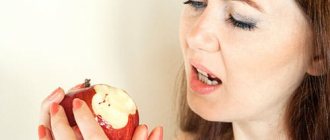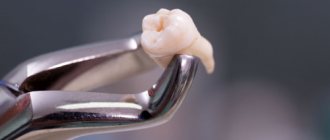In the last century, the fang was used as a talisman against damage; it was a reliable protection and is still popular today. Wolf or shark, it adorns the homes and bodies of modern people. The health of the oral area shows the energy of a person, and its diseases indicate the absence of any energy. But it happens that the physical condition is normal, but the teeth suddenly begin to fall out or break off. The doctor will tell you what to do, but along with his prescriptions, it is recommended to study the signs of a lost tooth.
Why do teeth fall out
Each tooth is located in its own socket and is securely held in it thanks to the periodontium. This is a whole complex of tissues, which includes root cement, dentogingival ligament and alveolar bone. They perfectly perform supporting and holding functions until inflammatory processes begin in the tissues. As a rule, the latter occur due to poor oral hygiene.
Within two hours after brushing your teeth, plaque begins to accumulate on them. It consists of food particles, saliva, the minerals it contains, and bacteria. There are especially many of them near the gums and between the teeth. Over time, plaque mineralizes and turns into tartar. It is the main cause of most dental diseases, including those associated with periodontal disease.
Inflammation of the tissues holding the tooth in the socket can be quite severe against the background of metabolic disorders, diabetes mellitus, thyroid disease, hypovitaminosis and osteoporosis.
Folk signs associated with baby teeth
The most popular character in modern children's folklore is the tooth fairy. The source of this character's appearance is European folk legends. In Slavic mythology, the role of such a fairy for children is played by a mouse, which comes running for milk incisors and leaves money or gifts for them.
Every child knows where to put a lost tooth - it needs to be put under the pillow.
In this case, at night the cutter will take the good spirit and leave a coin. Naturally, the exchange process falls on the shoulders of the parents. According to some beliefs, evil spirits come for teeth, and if you do not carry out such a ritual, you can seriously harm the future of your children. If the spirit manages to get to the tooth first, this will give him some power over the child’s fate. For the same reason, a tooth cannot just be thrown away.
In European countries, lost baby teeth are given to the will of fire. Parents believe that in this way they strengthen their children from illnesses and troubles in life. According to English beliefs, an unfinished ritual of burning a tooth can lead to the child growing a dog’s jaw, and after death he will not be able to go to hell or heaven, forever remaining between heaven and earth.
Another Slavic custom is to give a child’s tooth to mice for safekeeping, throwing it on the floor. It is believed that rodents are able to give a child their strong jaws and protect them from dark sorcery. There are also several signs associated directly with the loss of children's teeth:
- A child with sparse teeth is prone to adventures and mischief.
- If the baby's upper canine grows in first, this promises him death in his early years.
- Children were forbidden to lick the site of a lost tooth - it was believed that this would heal the wound and prevent a new tooth from growing.
- In the old days, babies who were starting to cut their teeth were given a wolf's fang to chew on. This was done so that the child’s jaw had a wolf-like grip.
Causes of tooth loss in adults
The acids contained in plaque over time destroy the hard tissues of the teeth and provoke inflammatory processes in the gums. This is how diseases begin that cause teeth to fall out in adults.
- Periodontitis Long-existing plaque attaches to the teeth and begins to mineralize. Gradually it goes down below the gum, causes inflammation and begins to destroy the ligament that holds the tooth in the bone. As a result, the periodontal ligament and bone tissue are destroyed, and the tooth becomes mobile.
- Periodontitis If caries is not treated, the infection gradually penetrates first into the dentin, then into the pulp of the tooth, and then reaches the periodontal tissues. This inflammation leads to destruction and subsequent loss of teeth.
Signs and beliefs associated with tooth loss
Since ancient times, it has been believed that a person’s incisors can be used to determine his level of health or character. In some cases, this can be explained scientifically. In a person with poor health, during illness, the first thing that happens is that the hair deteriorates and the teeth fall out.
Because of this, in ancient beliefs, teeth carry a special sacred meaning. Their presence is considered wealth and a large supply of vital energy, and their loss predicts troubles. There are many signs associated with teeth in different mentalities. Among them are particularly popular beliefs:
- if they itch, then this is a sign of a meeting in love;
- a person with sparse teeth is prone to lying;
- if a man has frequently located teeth, then he is an amorous person;
- a chisel knocked out during a fight promises changes in business or even a change of workplace;
- teeth grinding while eating means dining at a party;
- if a person creaks his jaws from anger, then most often he is of a kind nature;
- To avoid toothache for a whole year, you should gnaw on a pebble during a thunderstorm in the spring (just don’t overdo it, otherwise pain and problems cannot be avoided).
Tooth fell out: what to do
The loss of even one tooth leads to changes in the dentition and disruption of the dental system. As a result, a number of problems can arise:
- improper jaw closure
- increased stress on healthy teeth
- overload of facial muscles and temporomandibular joints
- headache
If all the teeth have fallen out, the proportions of the face change, and the person seems older than he really is. Therefore, in case of partial or complete adentia, it is necessary to restore the integrity of the dentition as quickly as possible. One of the most effective methods is implantation.
The artificial root performs all the functions of a real one and is securely fixed in the bone tissue. An aesthetic crown is installed on it. Thanks to the high precision of manufacturing, it is completely indistinguishable from real teeth.
Implants will help restore the functioning of the dental system, even if all teeth have fallen out, thanks to the All-on-4 and All-on-6 prosthetic methods. Implantation is the only way to completely restore the dentition without the sensation of artificial teeth.
The loss of even one tooth negatively affects the functioning of the dental system, so it is better to promptly seek help from a dentist. He will find out the cause of tooth loss in adults and prescribe effective treatment that will help avoid functional changes.
Signs on what to do with a lost tooth
Children's milk teeth, which fall out on their own and are replaced by molars, are usually thrown behind the stove or into the basement, giving to the mythical mouse. However, signs strongly do not recommend doing this if the tooth falls out not in a child, but in an adult. It is impossible to collect and store such biological material, although it does not pose any real potential danger. The fangs, incisors or molars of an adult are supposed to be burned or, in extreme cases, buried in the ground (you can even in a flower pot).
Attention! In no case should an adult’s fallen teeth be left unattended, since this bone tissue can be used in magical rituals, causing damage.
Teeth that have fallen out from an adult cannot be preserved.
How to protect teeth from falling out
- Brush your teeth regularly and properly To maintain oral health, it is important to brush your teeth twice a day - morning and evening. For best results, use floss or irrigator, as well as rinse aid.
- Go for preventative examinations to the dentist. This will help maintain the health of your teeth and gums, prevent the occurrence of diseases, and also take the necessary measures in a timely manner.
- Come regularly for professional oral hygiene. After this procedure, your teeth will become smooth and shiny, tartar and the bacteria living in them will disappear, and the condition of your gums will improve.
- Eat right Your diet should include foods rich in microelements and vitamins that are important for health.
- Give up bad habits Smoking and alcohol negatively affect oral health.
Proper oral care, professional hygiene and regular dental checkups will help prevent tooth loss. But if you encounter such a problem, we recommend that you do not delay your visit to the doctor. He will diagnose, prescribe treatment and help restore the integrity of the dentition using reliable techniques.
Customs for the loss of the first milk teeth
- in England, parents resorted to burning teeth so that magicians would not use them for their witchcraft purposes;
- in Rus', children turned to the brownie and the mouse, throwing a tooth behind their back and asking them to bring a “bone” tooth instead of a “burdock” one;
- the Romals made a conspiracy for wealth and long life for the baby by throwing a tooth to the moon;
- In Asian countries, the top tooth that fell out was thrown onto the roof, and the bottom one was placed under the floor.
Common Beliefs
In some European countries, it was long believed that after death the soul cannot rest until it finds its milk teeth. Their parents prudently burned them so that they would wait for their owner in the next world. This ritual also protected children from the evil eye and bad thoughts.
There are other folk beliefs regarding the teeth of both adults and children. The signs about wisdom teeth, which have always been attributed with unique properties, deserve special attention: if they are present, good luck will not leave a person, wealth and achievement of heights in career and love await him. The owner of a smile with 32 “pearls” could count on the help of his ancestors - they would never leave a relative, providing support in any matter. Previously, the question of why wisdom teeth grow had a simple answer - a person uses 100% of his mental abilities. The presence of all four "wise" units was considered a sign of a strong spirit. Some defects also spoke volumes:
- If a tooth chipped or broke, it was considered a bad sign. The person was damaged, the evil eye was cast upon him, and illness was expected.
- Diastema (gap) between the front teeth. Tibetan medicine attributed this feature to the presence of enormous energy potential in humans.
- A lost wisdom tooth in an adult was considered a sign of the imminent loss of a close relative. When asked why he was in pain, there was another explanation - the person would be faced with a difficult choice.
Where should I put the tooth and can it be stored?
Many mothers are sentimental about such things, putting the first ultrasound picture, a tag from the maternity hospital, or a lock of hair in a box. If a tooth has left its owner, parents often do not know what to do with it. Just throwing it away is too simple and at the same time difficult, because changing the first tooth is a whole event. The items that fall out are most often placed under the pillow, and when the child falls asleep, they are replaced with a small gift, candy. Although this is not very convenient, since the baby can push the tooth into the corner of the bed, and it will be difficult to find it.
Is it possible to store a lost tooth? Certainly! An interesting fact is that the latest scientific discoveries condemn the immediate disposal of freshly plucked milk elements. British scientists have learned to extract stem cells from pulp, and the frozen material is stored for about 30 years and can be used to treat serious diseases.
Myths about the tooth fairy
The tooth fairy, invented by the writer Luis Coloma, has deeply entered the culture of Western countries and solved the question of parents about where to put their child’s teeth. Children like the deal with the fairy - it is entertaining and rewarding. Before going to bed, the child needs to put the fallen tooth under the pillow, and in the morning a gift or coin will appear in the bed instead. Parents, of course, must remember to make the substitution.
The myth of the tooth fairy is a useful one: it helps in overcoming the fear of a lost tooth, the child receives compensation for the pain experienced. Writer Vicky Lansky advises parents to tell their children that the fairy brings more gifts for a healthy tooth than for a damaged one. This motivates kids to maintain hygiene.
Age-related changes
Contrary to popular belief, age-related changes associated with tooth loss occur not only in older people, but also... in children. We are, of course, talking about baby teeth. For many parents, such age-related changes turn into a real test of fortitude. At what age do children lose teeth?
The first milk teeth fall out in children at approximately five years of age, and the last ones at thirteen, at the beginning of adolescence. True, these numbers are not accurate and there are people with very late loss of baby teeth. Don’t be afraid of this; late loss, although uncharacteristic for most people, is still not a deviation from the norm.
What to do if a child’s tooth falls out? First of all, you should plug the wound. Give him gauze to chew on and also protect damaged teeth from harm. In particular, rid your baby of spicy, salty, etc. It is enough to follow the diet for just a couple of hours.
However, if children have molars after their milk teeth, this is not the case for adults. What to do if older people lose a tooth?
First of all, follow the same diet, protecting the damaged tooth from harmful influences, and secondly, you should consult a dentist.
The VTV dental clinic performs operations to restore teeth, and if a tooth has not fallen out, but only been damaged, it can be restored with crowns. These procedures are not only absolutely safe, but can even be completely painless if anesthesia is used. The patient does not feel anything, and when oral sensitivity returns, everything is already done. The time of scary drills is a thing of the past.
Signs when the first tooth appears
There are several different signs among people that refer to the appearance of a child’s first incisors. The usual period in which they begin to grow in babies is the age of 5–6 months.
If the tooth erupted earlier or later, this was a reason to judge the possible future of the child. We paid attention not only to the time of appearance, but also to the sequence of filling the dentition and the structural features of the jaw:
- If the first tooth comes out beyond y - the birth of a brother or sister a year after the baby was born.
- If teeth appeared with a delay relative to the traditional period (later than 7 months), the child was predicted to have talent and great achievements in a certain area.
- If a coin, turned edgewise, was placed between the baby’s two central upper teeth , the parents believed that their child would be successful with the opposite sex. The second interpretation is luck in adult life.
- The baby was born “toothy” or he first developed fangs - a bad sign, foreshadowing imminent death or service to evil in adulthood. But there is also the opposite interpretation - in adulthood a person will be very successful and lucky.
These superstitions can hardly be called relevant, because dentists have long proven that the speed of tooth formation and the structure of the jaw is determined by the innate characteristics of each child, and not by mystical reasons.
There is a belief that will help young mothers determine the moment when they can start complementary feeding.
The sign says that when the first tooth comes out, the baby should be given a spoon made of silver, and be sure to knock on the tooth with it. This action symbolized that the baby could already eat something other than his mother’s milk.

